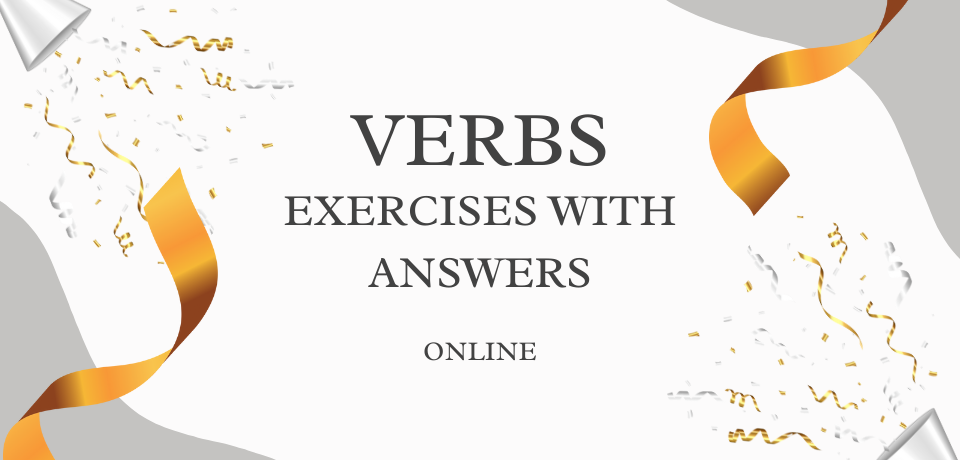Verbs are words which show an action (walk), occurrence (develop), or state of being (exist). Nearly every sentence needs a verb.
Transitive and Intransitive Verb:
A transitive verb is a verb that indicates an action that passes over from the doer or agent to an object. Transitive signifies passing over.
For example,
Ram eats an apple.
The action of ‘eating’ passes over from the doer (Ram) to the object ‘an apple’. In case we get answer to “Who eat?” we also get an answer to “who eat what?”
An Intransitive Verb is a verb that indicates an action that do not pass over to an object, or that describes a state of an object, or that describes a state of being. For example,
The stars are twinkling.
Here, ‘twinkling’ is an intransitive verb. The action of twinkling does not pass over from the doer (stars) to any object. Here, we do not get an answer to “who twinkle what?”
Other examples of intransitive verbs:
He slept on the floor.
Slept, here, is an intransitive verb. It does not indicate any action, but the state of sleeping.
She is a student.
‘is’ in the above sentence is an intransitive verb. It does not indicate any action, but being. Is is a form of be.
Examples of Intransitive Verb:
Go, come, fall, awake, walk, rise, swim and crawl indicate actions which can’t be done to anything. Hence, they can be used intransitively.
Regulation: When an intransitive verb is utilized in a causative sense, it becomes transitive.
For example,
- He sat on a sofa.
- He sat me on a sofa.
In the first sentence, ‘sat’ is used as a transitive verb. However, in the second sentence it becomes transitive. ‘Me’ becomes the object. Here the meaning is actually he caused me to sit or else he made me sit.
Regulation: Verbs such as lie, fall, sit and rise are made by a minor change in their spelling. The transitive is the causative of the matching intransitive verb.
Incorrect: Rise your hand in case you want to go to the trip.
Correct: Raise your hand in case you want to go to the trip.
Here, your hand is an object of the verb ‘Rise’. However, rise is an intransitive verb as ‘The sun rises in the east’. The transitive form is ‘raise’, which denotes cause to rise.
Exception: The verb ‘sit’ is also used in the transitive (causative) sense. However, that is restricted to living things.
For example, if you make a visitor sit,
You may state
I sat the visitor.
But not I sat the luggage.
The verb applied in such cases is set, not sit. And set does not change form. Thus,
Correct: I set the luggage on the floor.
Verbs of Incomplete Predication:
The intransitive verb which needs something to make the sense complete is known as a verb of incomplete predication. For instance, be, become, grow, taste, appear, seem.
That which is needed to make the sense (of these verbs) complete is called the complement of the verb or the completion of the predicate.
For example,
She seems.
Now, seem is an intransitive verb. But the sense is incomplete. On addition of another word, for instance,
She seems delighted.
The meaning becomes clear. Hence, delighted is the complement of seems, a verb of incomplete predication.
Such complements illustrate the subject (here ‘She’) and delighted is thus a subjective complement.
Voice of verbs:
Voice is that form of a verb which exhibits whether what is indicated by the subject does something or else has something done to it.
A verb is in the active voice while its form shows that the individual or thing indicated by the subject does something, that is, is the doer of action. The subject acts.
A verb is in the passive voice while its form shows that the individual or thing indicated by the subject. The subject is not active however passive. It does not act, however suffers or receives some action.
Let us consider the following sentences:
- The sweeper swept the floor.
- The floor was swept by the sweeper.
Both these sentences have the same meaning. The difference, nevertheless, lies in emphasis. In the first sentence, ‘The sweeper’ becomes prominent. In the second sentence, ‘The floor’ becomes prominent. Hence, the function of voice lies in transferring of prominence.
Sentence 1 is in the active voice since the subject (The sweeper) is the doer of the action (swept). The floor is the object, here.
Sentence 2 is in the passive voice since the subject (The floor) is not the doer of the action; the receiver (was swept). It does not have any object.
Note: The object of the verb becomes the subject in the passive voice. Hence, only transitive verbs can be used in the passive voice since an intransitive verb does not have any object.
